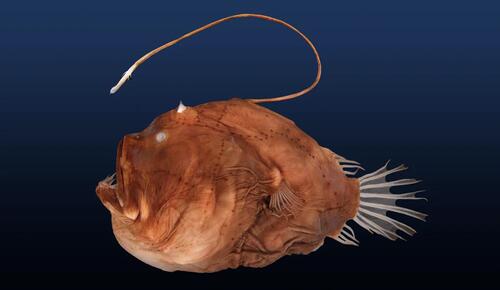
As the planet’s most expansive ecosystem, the deep sea can be a tough place to find a mate. Though, scientists say, some deep-sea anglerfishes evolved a unique method of reproduction that ensures that once they land a partner in the vast open waters, they remained latched for life.
These anglerfishes, called ceratioids, reproduce through sexual parasistism, in which the tiny males attach to their much larger female counterparts to mate. In some species, the males bite the females and then release once the mating process is complete. In others, the male permanently fuses to the female. In a process called obligate parasitism, the male’s head dissolves into the female and their circulatory systems merge. He transforms into a permanent sperm-producing sexual organ.
In a new study published May 23 in the journal Current Biology, Yale researchers examined how sexual parasitism works in synergy with other traits associated with the fish to influence the diversification of anglerfishes, an animal that is found throughout the oceans and whose name is inspired by the fishing rod-like appendage females use to lure prey.
The research has potential implications on human health, said senior author Thomas Near, professor of ecology and evolutionary biology in Yale’s Faculty of Arts and Sciences and Bingham Oceanographic Curator of Vertebrates at the Yale Peabody Museum.
“Better understanding how deep-sea anglerfishes lost adaptive immunity could one day contribute to advances in medical procedures, such as organ transplants and skin grafting, where suppressing immunity is crucially important,” he said. “It’s an interesting area for future medical research.”
For more information, click here for an article published by Yale News or here for an article published by The New York Times.



